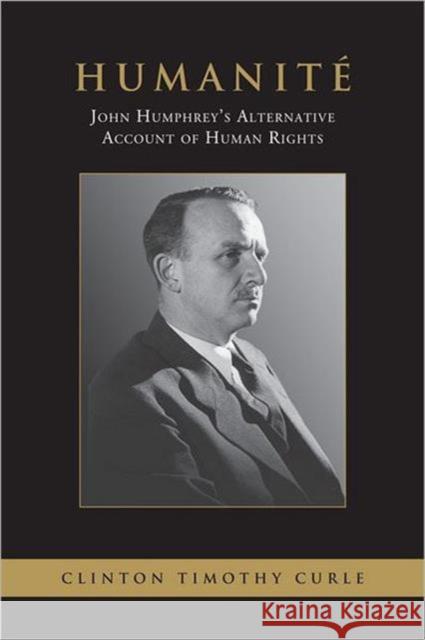Humanite: John Humphry's Alternative » książka
Humanite: John Humphry's Alternative
ISBN-13: 9780802092618 / Angielski / Twarda / 2007 / 212 str.
Contemporary debates about the concept of human rights are characterized, at their core, by difficulty negotiating the tension between the universal and the particular. One of the central challenges of an increasingly global society is to determine how we can affirm universal human rights while respecting the distinctive traditions of individual cultures.To address this challenge, Clinton Timoth Curle turns to John Humphrey, an oft-ignored Canadian who is chiefly responsible for the United Naitons' Declaration of Human Rights. Using Humphry's journals as a starting point, Curle illustrates how Humphry was profoundly influenced by the philosophy of Henry Bergson, and in fact regarded the Declaration as a kind of legal transliteration of Bergson's philosophy of the open society. Curle goes on to provide a careful analysis of Bergon's philosophy, and to establish an affinity between Humphry's vision of the contemporary human rights project and the Greek Patristic tradition.Curle concludes that the Universal Declaration of Human Rights, understood in a Bergsonian context, provides us with a way to affirm in the modern context that there is a ground to human fellowship which is transcendent and which offers a basis to establish a universal ethics without a radical homogenization of cultures.











